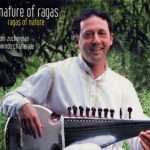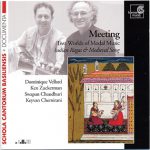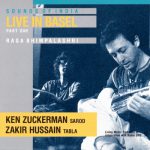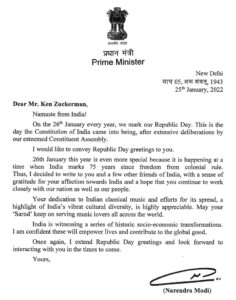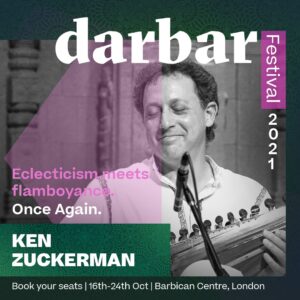Music Academy of Basel, Switzerland
Ken Zuckerman has been a Professor at the Music Academy of Basel for 38 years. He teachers at all 3 departments of the Music Academy: the Conservatory (Musikhochschule), the Music School (allgemeine Musikschule) and the Early Music School (Schola Cantorum Basiliensis).
Ken’s course offering at the Hochschule für Musik take place within the framework of the “Studio für Musik der Kulturen” (SMK), a department founded to introduce musics of the world to western music students.
His course offerings include:
Introduction to Indian Music – this class introduces students to the basic elements of classical Indian music through singing. It is especially suited to students who want to get a first taste of Indian music without having to take up one of the difficult Indian instruments. As Indian music is deeply rooted in singing, there is an extensive repertoire of basic vocal compositions which give students an excellent introduction to the essential elements of Indian music.
Indian Music – Instrumental class
Group instruction on sarod, sitar, violin, cello, etc.
Indian Music – private instruction
Modal Improvisation
Introducing Indian music concepts and skills into the western music classroom
Although Indian music has enjoyed a steady growth of popularity in the concert life in the West, it has been difficult to integrate it into western music education, both on the general and professional training levels.
In a handful of music conservatories in Europe and the USA, there has been some success in introducing Indian music courses into the curriculum. However, for a variety of reasons these courses have not reached a significant number of students. First of all, the courses are rarely part of the mandatory curriculum, which is so packed with theory, history, ear training, individual practice, ensemble rehearsals and performance schedules, that students scarcely have the time or incentive to try out anything new. In addition, many students do not see the relevance of Indian music to their studies.
However, it is clear that besides the value of gaining some insight into a form of music outside ones own specialty, many of the basic skills of Indian music can also be of great value to any western music student. So the challenge remains: how to construct an introductory course which can also be relevant. The experimental course entitled “Modal Improvisation”, presently being offered both at the Basel and Zurich music conservatories, attempts to address this challenge. It does this by focusing only on several of the basic concepts and skills of Indian music – skills which have also been recognized as being beneficial for western music students. These include 1) introducing a monophonic music system that is based on highly differentiated modal hierarchies, 2) exploring the rules and strategies of improvising within specific modes (ragas), and 3) concentrating on melodic and rhythmic ear training exercises which are not usually a part of western music courses. In addition, 4) students have the valuable experience of learning all of these skills by means of a fundamentally different system of music pedagogy: unwritten, oral tradition from the East. Of course, an added incentive for students is that this class earns credit points and satisfies one of their course requirements within the general category of improvisation.
The results and feedback of this course have been very encouraging. Within a surprisingly short period of time, the students gain a basic understanding of up to 35 Indian modes and make their first attempts at improvising within the rules of several raga hierarchies. They also significantly improve their ability to listen to increasingly complex melodic and rhythmic phrases, internalize them and then repeat them in the moment. Finally, they develop an appreciation for the aesthetic qualities of one of the worlds’ most highly evolved systems of monophonic music. Some of the students even go on with the more advanced level of the course in the following year.
For more information about courses offered at the Musikschule Basel please click here

